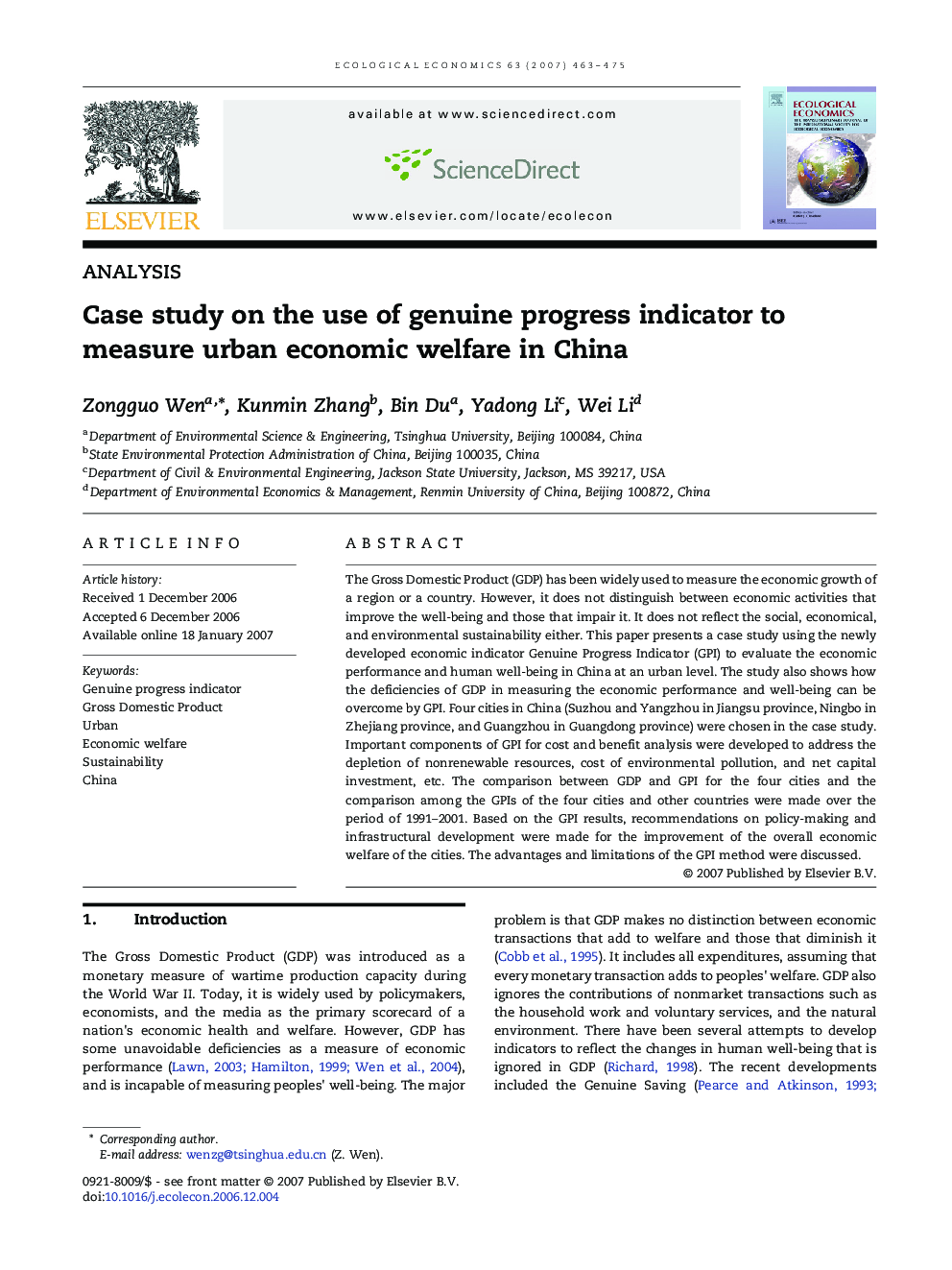| Article ID | Journal | Published Year | Pages | File Type |
|---|---|---|---|---|
| 5052198 | Ecological Economics | 2007 | 13 Pages |
The Gross Domestic Product (GDP) has been widely used to measure the economic growth of a region or a country. However, it does not distinguish between economic activities that improve the well-being and those that impair it. It does not reflect the social, economical, and environmental sustainability either. This paper presents a case study using the newly developed economic indicator Genuine Progress Indicator (GPI) to evaluate the economic performance and human well-being in China at an urban level. The study also shows how the deficiencies of GDP in measuring the economic performance and well-being can be overcome by GPI. Four cities in China (Suzhou and Yangzhou in Jiangsu province, Ningbo in Zhejiang province, and Guangzhou in Guangdong province) were chosen in the case study. Important components of GPI for cost and benefit analysis were developed to address the depletion of nonrenewable resources, cost of environmental pollution, and net capital investment, etc. The comparison between GDP and GPI for the four cities and the comparison among the GPIs of the four cities and other countries were made over the period of 1991-2001. Based on the GPI results, recommendations on policy-making and infrastructural development were made for the improvement of the overall economic welfare of the cities. The advantages and limitations of the GPI method were discussed.
